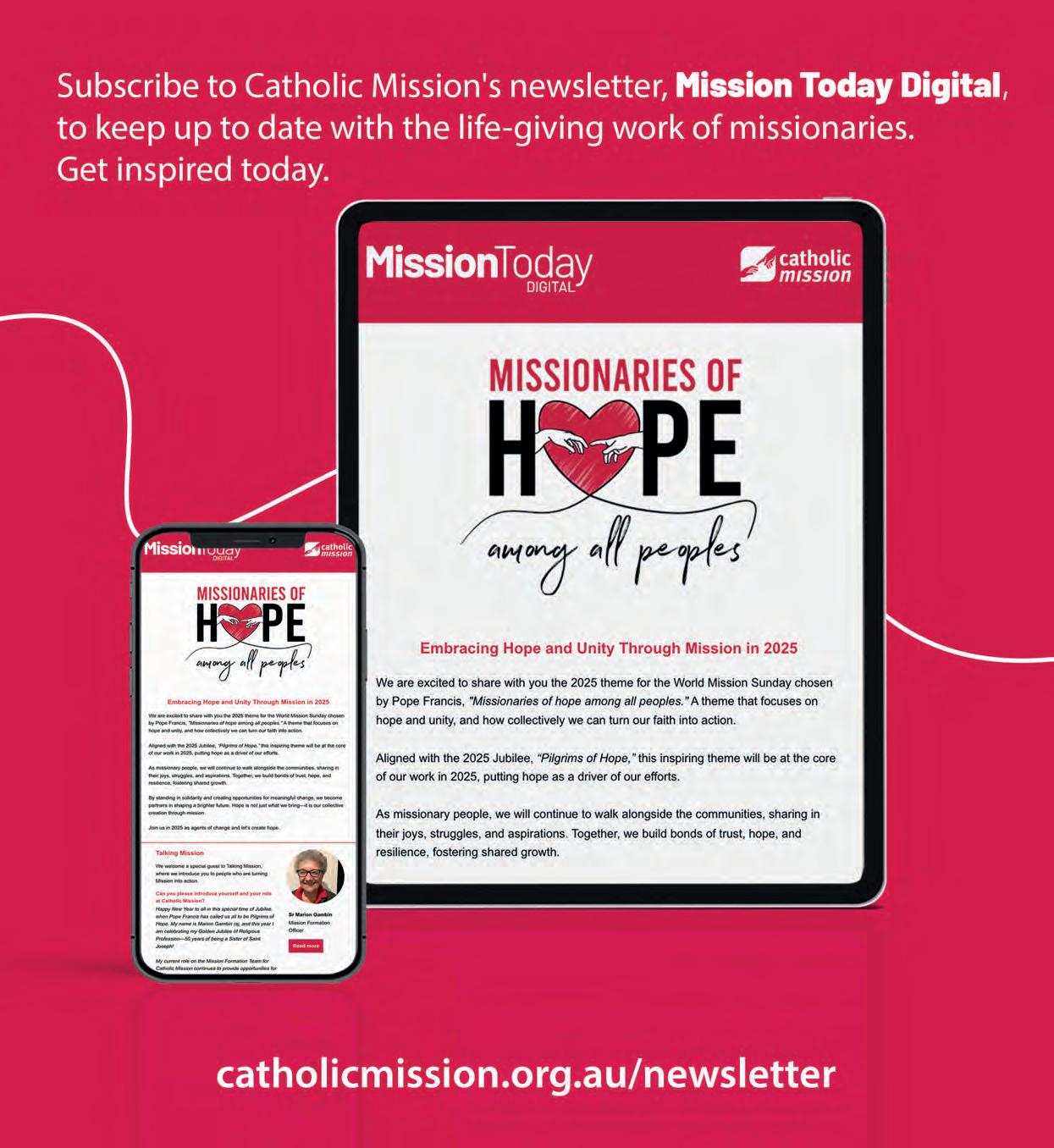ZAMBIA 07
INTERFAITH 14
SOCKTOBER 19



ZAMBIA 07
INTERFAITH 14
SOCKTOBER 19


PO Box 1668
North Sydney NSW 2059
info@catholicmission.org.au
1800 257 296
@catholicmission
@catholicmission
@catholicmissionTV
catholicmission.org.au
Cover image: A young member of the vibrant Mpika Diocese community in Zambia.
Editor: Astrid Delayre
Contributors: Jenny Collins-White, Patrick Fox, Richard Libunao, Bridget Barber, Conor Nolan, Catherine Towiro, Peter Gates, Sr Jessika Trieu.
Photos: Simone Medri, Catholic Mission partners
Design: Maria Fernanda Ramos, Smarta By Design
Printed by: BMS Group
Names of people under 18 have been changed.
Catholic Mission acknowledges that we live and work on the land of Australia’s First Peoples. We pay our respect to the ever- p resent spirituality of Elders past and present.
This publication may include images of deceased persons.
This magazine is printed on Grange. Grange Offset (70-120gsm) is PEFC certified. Manufactured in facilities with ISO 14001 EMS certification and made elemental chlorine-free with ISO 9706 Longlife certification.
Grange Board is proudly manufactured FSC certified using pulp sourced from responsibly managed forests and is made with elemental chlorine free pulps.
As we welcome this Year of Jubilee focused on ‘Pilgrims of Hope’, I sincerely hope that this edition of Mission Today will inspire you to join us on our journey towards becoming agents of change and co-creating hope with the people we walk alongside.
In this edition, you will learn how communities are coming together through the Interfaith Encounters Program and how our flagship program, Socktober, which was successfully launched in Darwin, is mobilising school communities to kick goals. Throughout these pages, you will also read about missionaries and their journeys.
We hope these stories inspire you and help you realise that you too are a missionary, and that together we have the opportunity to create a more just world.
Yours in Mission,
© Copyright Catholic Mission 2025 ABN 52 945 927 066

Fr Brian Lucas National Director

Part of the international Pontifical Mission Societies/Missio network
• Propagation of the Faith
• Children’s Mission
• St Peter Apostle
• Pontifical Missionary Union
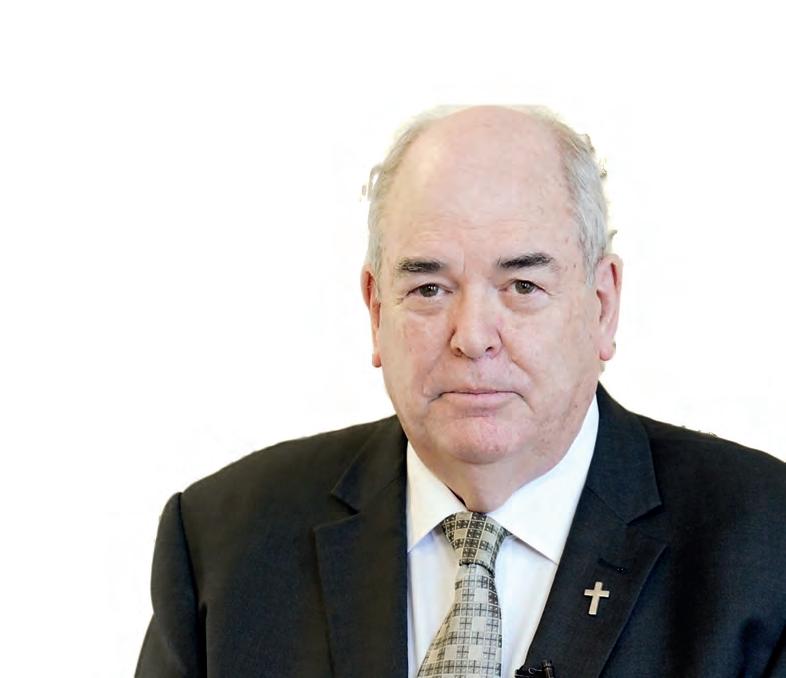
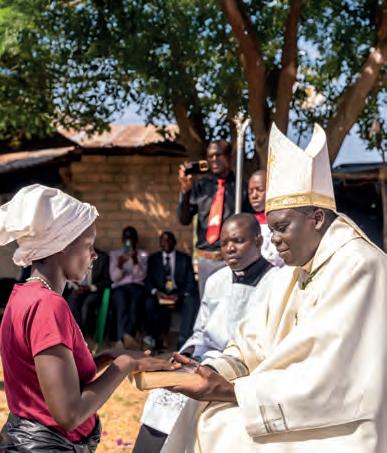
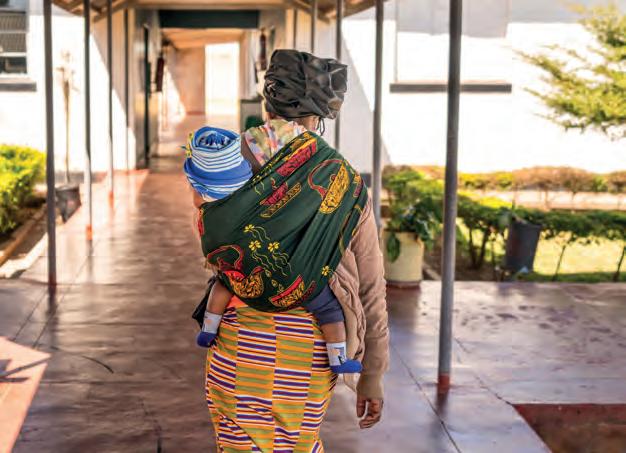
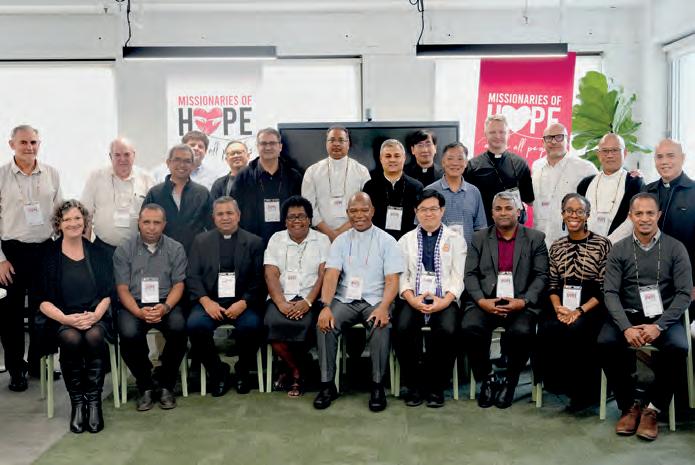
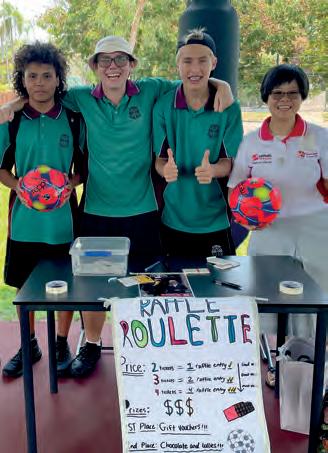
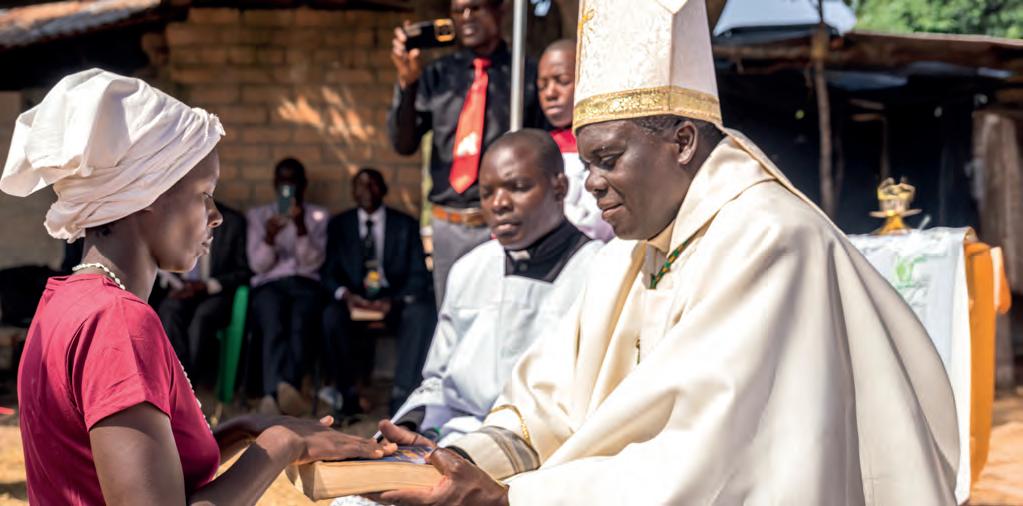
What makes the World Mission Sunday message special is that it goes beyond words — it is a call that resonates in people’s hearts and inspires them to take action. As this call echoes around the world it gains strength, transforming individuals into agents of change and creating a wave of generosity, kindness, love, and hope.
This year, Pope Francis’ World Mission Sunday message focuses on hope and unity. The theme, ‘Missionaries of hope among all peoples’, urges everyone to strengthen global solidarity in response to growing humanitarian challenges.
Guided by Pope Francis’ words, we are committed to amplifying this message of hope in Australia and beyond. As a missionary people, we walk alongside communities, sharing in their joys, struggles, and aspirations.
Pope Francis emphasises the vital role of missionaries in fostering trust and unity, reminding us that our mission is about inspiring meaningful change and empowering people.
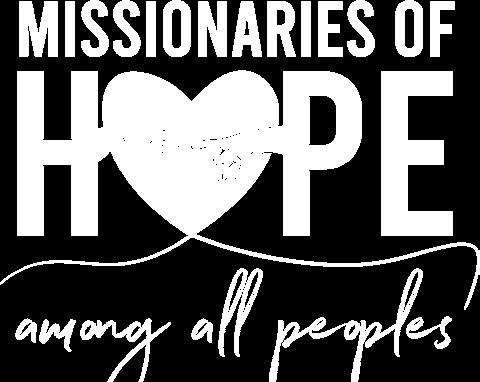
and societies, stressing that the Church’s universal mission is to unite people, bridging divides through shared compassion and service.
In following Christ the Lord, Christians are called to hand on the Good News by sharing the concrete life situations of those whom they meet, and thus to be bearers and builders of hope,” Pope Francis highlights in his message.
By standing in solidarity and creating opportunities for transformative change, we become partners in shaping a brighter future. Trust is one of the foundations upon which hope is built, paving the way for lasting transformation. Pope Francis reminds us that true mission is not about reaching out from a distance but journeying side by side with those most in need, embodying the love and compassion of Christ.
As the world faces increasing challenges, this call to action urges everyone to embrace their role as missionaries of hope.
Hope is not merely something we share; it is something we create together through mission.
This year, we invite you to become a missionary of hope. Learn more
The message aligns with the 2025 Jubilee theme, ‘Pilgrims of Hope’, reinforcing the connection between faith and action. Pope Francis calls for deeper collaboration across cultures
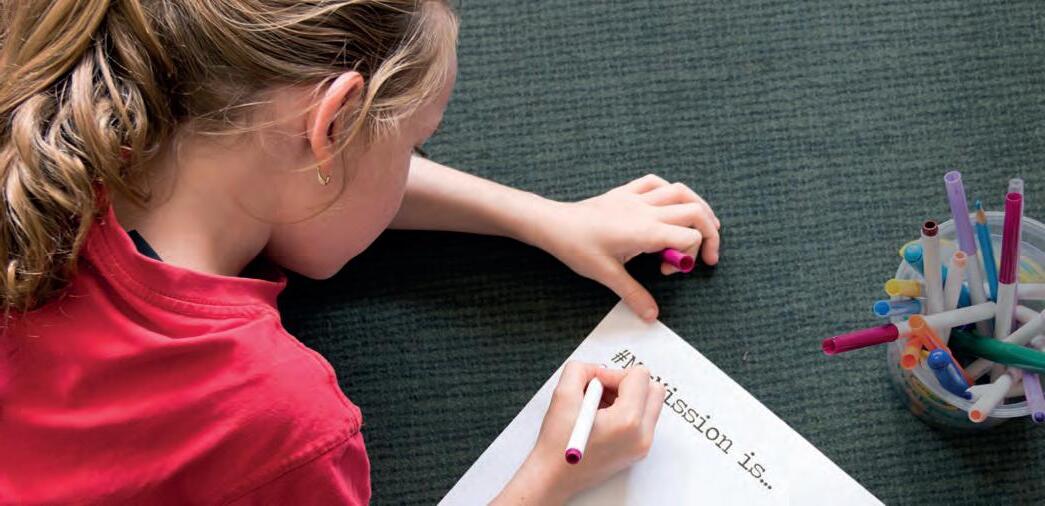
Education plays a vital role in shaping young people’s minds, and when it comes to faith-based learning the opportunity to inspire students with the principles of mission and service is invaluable. Catholic Mission, in collaboration with the To Know, Worship and Love textbook team, has embraced this opportunity by contributing to the creation of mission-focused chapters in the revised 2025 edition.
“Being able to be part of the textbook To Know, Worship and Love is an incredible opportunity for us, as it enables us to be at the heart of the school and to teach and inspire students about the work of mission,” says Jenny Collins-White, Associate Director of Mission Formation at Catholic Mission.
“As we collaborated with co-workers from different parts of the organisation to bring together a 360-degree view of mission that would be digested by Year 9 and Year 10 students, we were able to reflect on how mission is accessible to all.”
The mission chapters will soon be available online through the To Know, Worship and Love platform, a cornerstone of religious education for
primary and secondary Catholic schools across Victoria and New South Wales.
The chapters are designed to enhance students’ understanding of mission and the different forms it takes — from a kind action of reaching out to a friend, to raising funds to support the construction of classrooms overseas. At the core of these chapters is the importance of action, as everyone is an agent of change. The textbook chapters emphasise this aspect, encouraging students to embrace their missionary spirit.
Action is key in mission, because without this gesture of reaching out, we lose the essence of what being people of mission truly is,” says Patrick Fox, Cultural Competency Facilitator at Catholic Mission, who collaborated on the project.
These chapters provide teachers with valuable resources to inspire and guide their students in developing a deeper understanding of mission and its role in their lives.
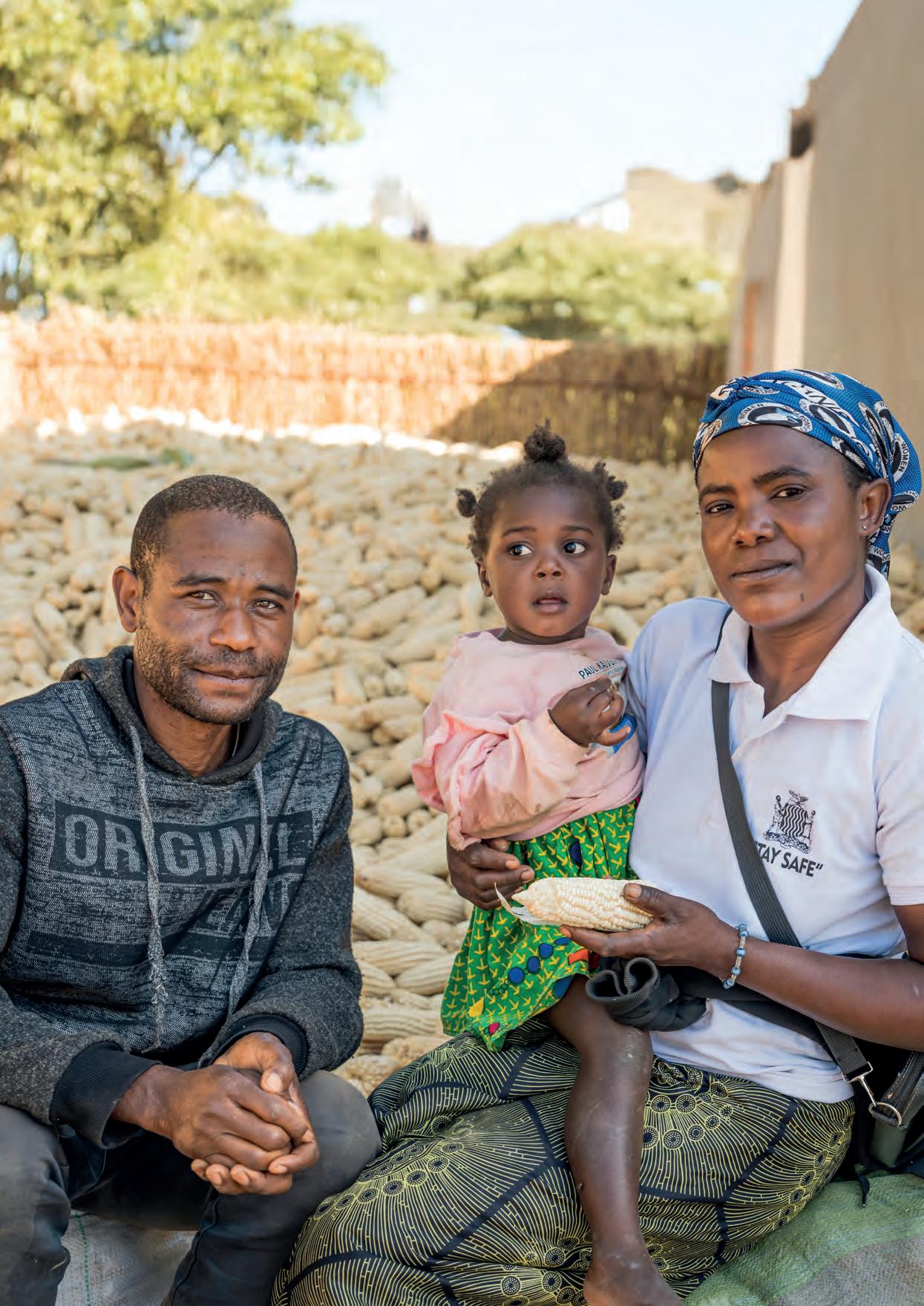
A family in front of their crops of corn, which they have cultivated as their main source of revenue.
Languages:
English (official language), Nyanja and Bemba (main local languages)
Capital: Lusaka
Population: 21,645,982 (2025)
Percentage of Catholics: 20.2%
Number of dioceses: 11 dioceses
Economy: Copper mining and processing, construction, agriculture
Main challenges:
High poverty rate, limited access to healthcare and education services (especially in rural areas), high reliance on copper and mining exports
Zambia, officially the Republic of Zambia, is a landlocked country in Africa and is bordered by eight countries including Tanzania, Zimbabwe, and Angola. Its capital, Lusaka, serves as the political and economic hub of the nation. The country spans 752,617 square kilometres and is home to more than 21 million people.
Blessed with abundant natural wealth, Zambia is working toward overcoming challenges and unlocking its full potential. The country currently relies heavily on copper mining, which makes up a large share of its exports, however, fluctuations in global copper prices often cause economic problems. To grow its economy, Zambia is developing other sectors such as farming and tourism, but progress is slow due to poor infrastructure and lack of investment.
The need to improve infrastructure has led to a large public debt, leaving fewer resources available to finance essential services such as healthcare and education. This financial burden limits growth and development, making it harder for the population to access vital services.
Poverty is a constant challenge, with more than half the population living below the poverty line. Rural areas experience the greatest difficulties, with limited access to clean water, electricity, and sanitation, as well as barriers to education and healthcare.
Addressing climate change and deforestation is also a priority, as they impact agriculture, livelihoods, and access to essential services.
The resilience of the Zambian people and local communities is inspiring. Grassroots initiatives, such as small scale farming projects and renewable energy efforts, are helping to improve livelihoods and drive positive change. With continued innovation and global partnerships, Zambia is well positioned to build a stronger, more sustainable future.
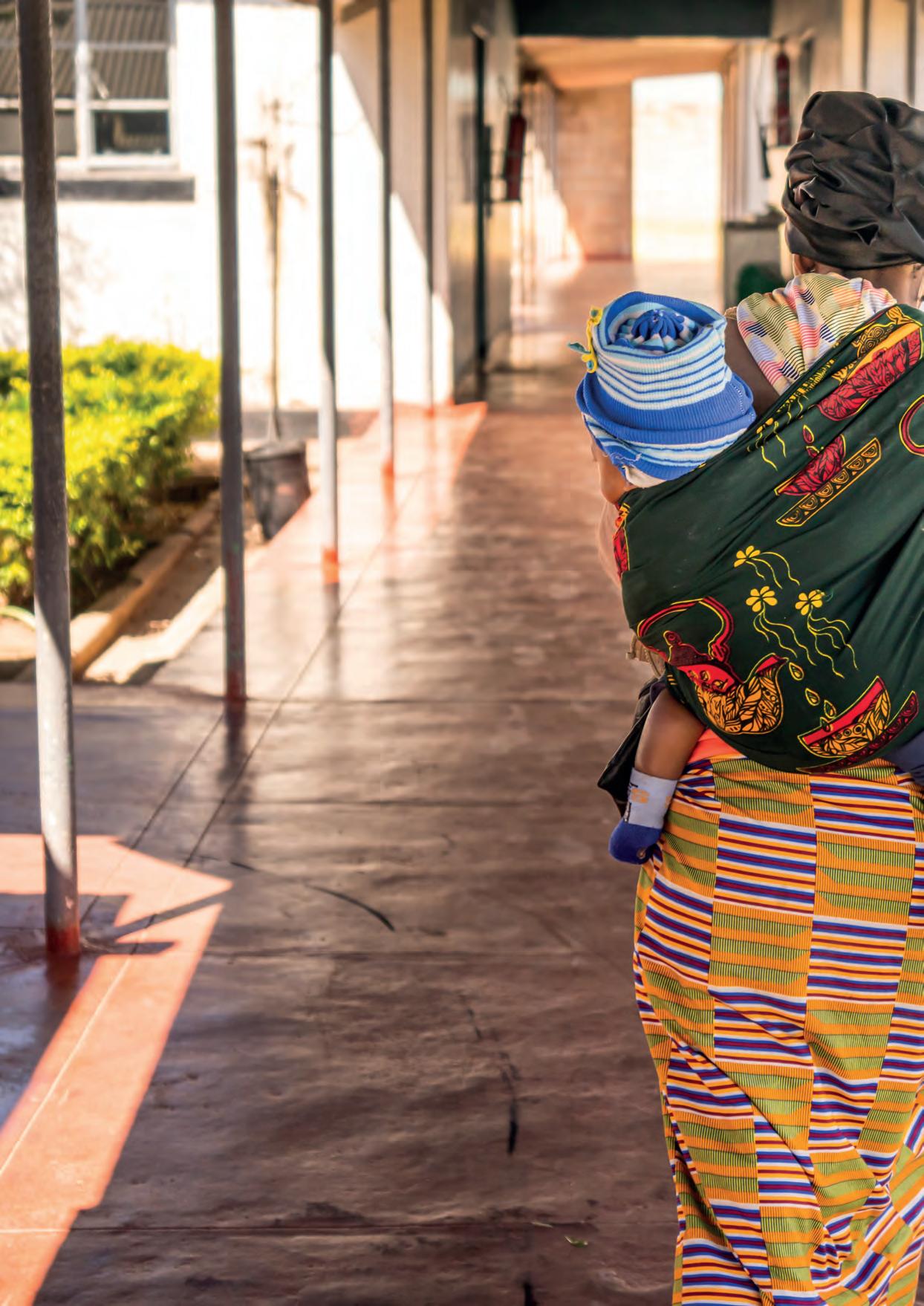
By empowering the women we are empowering the nation.”
Abraham Muma, Health Desk Coordinator, Mpika Diocese
Access to healthcare remains a significant challenge in Zambia, especially in rural areas where 60 percent of the population lives. There, communities face a critical shortage of healthcare facilities and medical professionals, forcing many people to travel long distances, at great cost, to receive basic care. In the Diocese of Mpika, this reality is part of everyday life.
Maternal healthcare is a particularly serious concern. Statistics reveals that 31 percent of women give birth without adequate medical support, and postpartum haemorrhage accounts for 34 percent of maternal deaths in Zambia. This high mortality rate arises from a combination of factors, including limited access to prenatal screening, and the lack of timely emergency care when complications arise — which leaves many mothers vulnerable during childbirth.
With a majority of families living below the poverty line, essential maternal healthcare services, such as blood transfusions and surgical care, are out of reach for many.
To address these challenges, the Diocese of Mpika is working in partnership with local government and Catholic Mission to improve healthcare access and quality for people across the region. The diocese currently manages six healthcare facilities, including Chalabesa Mission Hospital, which plays a vital role in serving remote communities.
Their efforts are focused on strengthening maternal and child health services, providing safe and supportive environments for childbirth, ensuring faster referrals for mothers needing specialised care, and ultimately reducing maternal and neonatal mortality rates.
With your support, the Diocese of Mpika hopes to further enhance its healthcare infrastructure by creating a maternity wing and mothers’ shelter at Chalabesa, and establishing 10 outreach health posts to serve some of the most isolated communities.
Together, we can help ensure that every mother and child receives the care they deserve.
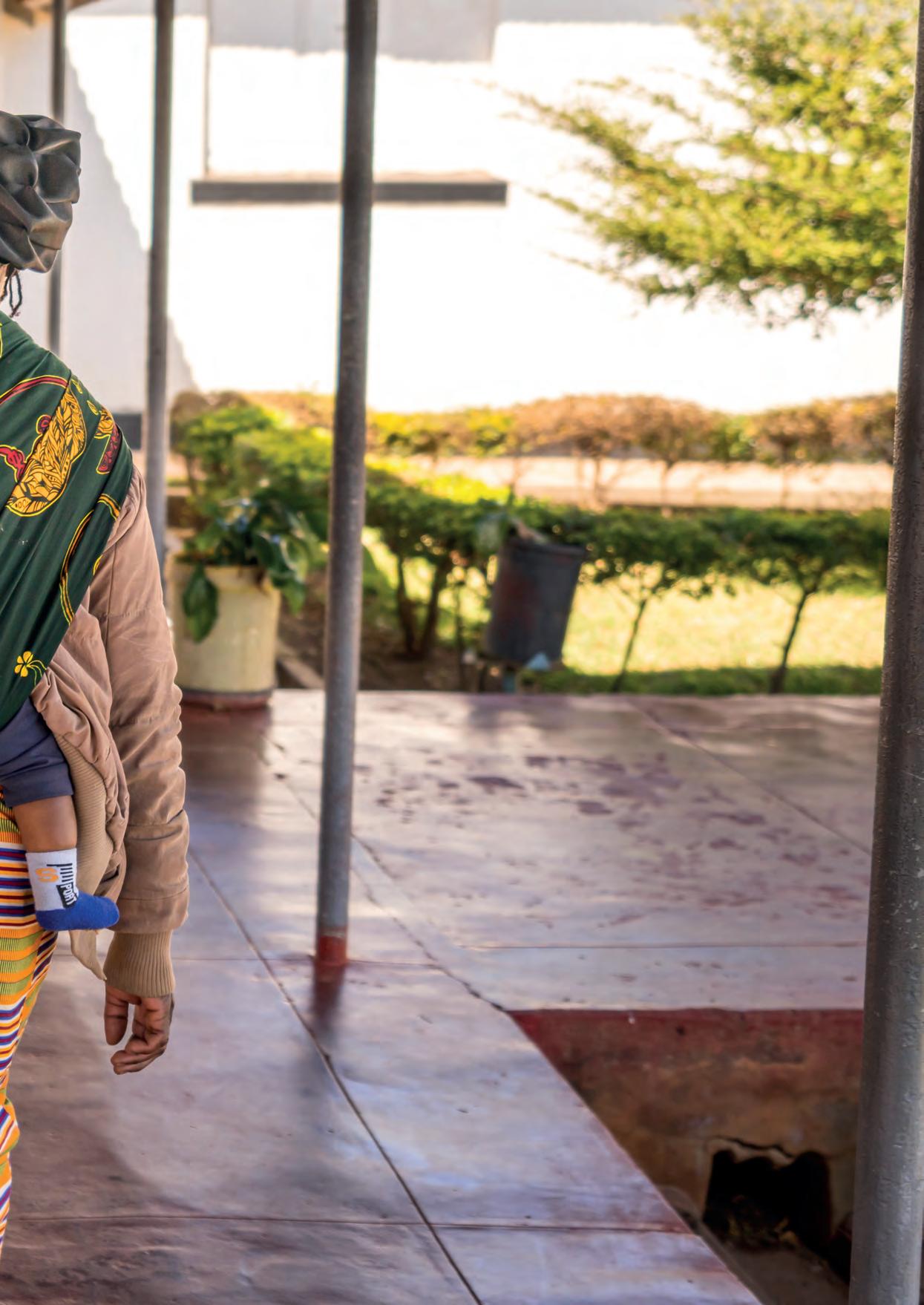
Learn more
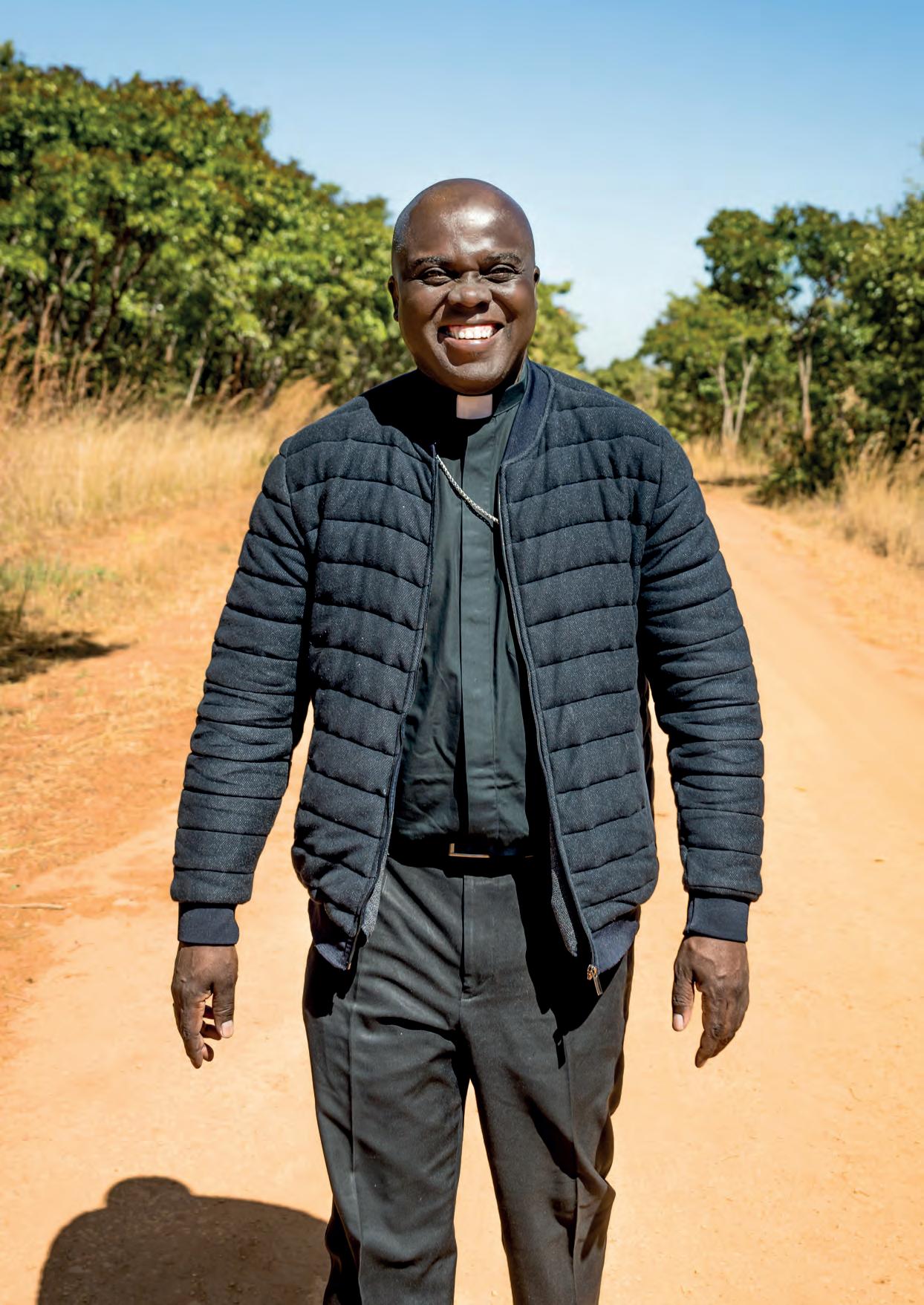
Born in the Copperbelt Province, Zambia, Bishop Mulandu has devoted his life to God and his people. Ordained in 2001, he has served as a priest, lecturer, and national director of the Pontifical Mission Societies in Zambia, and was appointed Bishop of Mpika in 2021 by Pope Francis.
Since then he has worked tirelessly to strengthen communities, empower youth, and inspire faith. He is much more than a leader, being acknowledged as a father to his community and a true servant of God.
When Bishop Mulandu arrived in Mpika he recognised that the needs of his people extended far beyond spiritual care. Coming from an urban background, he was faced with the reality of serving a rural diocese where people struggled with poverty, limited access to education, and inadequate healthcare.
Education quickly became one of his key priorities, recognising it as a powerful tool to transform communities and break the cycle of poverty.
“Contributing to establishing a school is one of the areas that I thought will help us to contribute to tackling these challenges,” he says.
As Bishop Mulandu explains, for many children, the journey to secondary school can be difficult. After completing Grade 7 they often find there is no secondary school nearby, forcing them to either relocate or abandon their education altogether.
“It means you have to find a place elsewhere, maybe here. Now, look at the distance that is there. How many children are going to be privileged to access education higher than Grade 7? It means most of them, they’ll end at Grade 7 and forget. They get married and forget. That will contribute to poverty levels.”
Bishop Mulandu has also focused on healthcare, creating a Health Desk with the aim of to improving health services within the diocese.
“When I came here, I formed the department for health and engaged a person… as health desk coordinator,” he says.
Through it all, Bishop Mulandu’s faith in God’s providence has never wavered.
This reliance on divine grace, combined with his commitment to action, has made him not just a spiritual leader but a symbol of hope; inspiring people to walk with faith, love, and a deep sense of community responsibility.
“These are just dreams, but we need God to realise them. We need His intervention.” Bishop Mulandu, Bishop of Mpika, Zambia
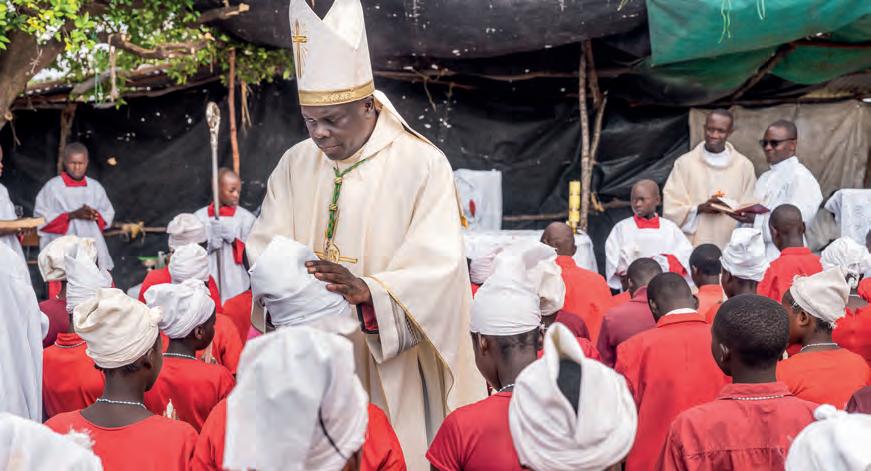
Left: Bishop Mulandu blessing parishioners during Sunday Mass.
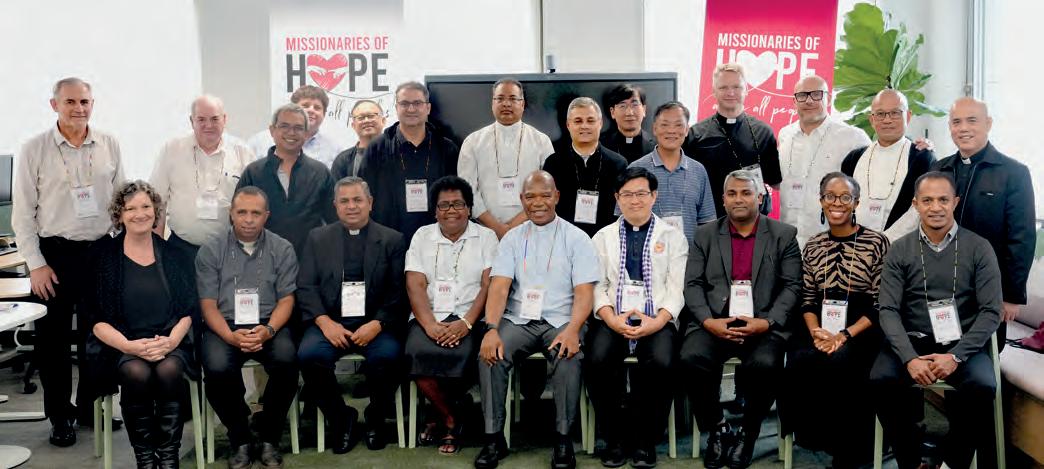
National Directors of the Pontifical Mission Societies (PMS) in Asia and Oceania discussed the challenges and opportunities facing the region in the first ever intercontinental meeting held in Sydney in February.
Drawing inspiration from the theme for World Mission Sunday, ‘Missionaries of hope among all peoples’ and the Jubilee year’s theme of ‘Pilgrims of Hope’, the directors engaged in extensive discussions about the work, opportunities, and hopes for the global mission of the Church in their region.
They explored the challenges facing their respective countries and identified best practices to support their mission. It was an opportunity for the various offices to discuss ways to optimise their work by sharing resources and knowledge.
Providing an invaluable space for dialogue, learning, and reinforcement, the summit featured meetings with key representatives of the Australian Church. They included Archbishop Charles Balvo, Apostolic Nuncio to Australia, and Bishop Vincent Long Van Nguyen OFM, Bishop of the Diocese of Parramatta. Participants also met with members of the Synod Assembly, such as Kelly Paget, Chancellor of the Broken Bay Diocese.
Hosted by Catholic Mission, the five-day meeting brought together PMS directors
from 20 countries on both continents, including Bangladesh, Cambodia, Laos, Indonesia, Kazakhstan, Korea, Lebanon, New Zealand, the Pacific Islands, Pakistan, the Philippines, Sri Lanka, East Timor, Vietnam, Papua New Guinea and the Pacific region.
Held from February 19-23, the summit is a regular event, complementing the General Assembly meeting which all National Directors participate in each May.
Catholic Mission National Director, Fr Brian Lucas, says the gathering was crucial in addressing upcoming challenges and opportunities in the region, while keeping at the heart of mission the goal of providing support to people most in need.
Catholic Mission was privileged to be able to host the intercontinental meeting of the Asia and Oceania National Directors of the Pontifical Mission Societies.
“Australia has very strong relationships with our immediate neighbours, including supporting a regional office in Phnom Penh, and this opportunity for personal interaction sets a secure foundation for ongoing cooperation,” adds Fr Brian Lucas.
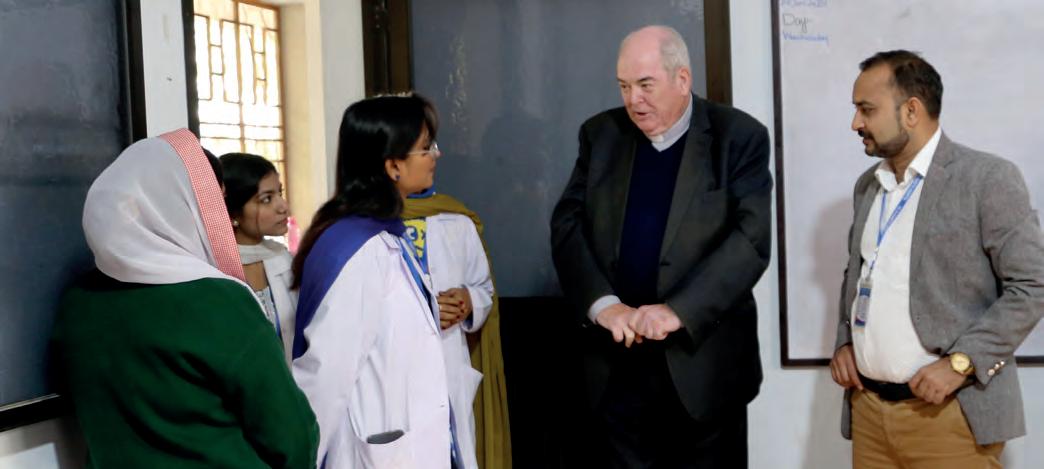
Two years ago, Catholic Mission partnered with St Elizabeth Hospital to support key projects aimed at significantly enhancing community access to healthcare.
Located in the heart of Hyderabad, Pakistan, the hospital stands as a symbol of compassion and hope, offering critical healthcare services to local communities. Among its transformative initiatives is a palliative care program which provides much needed support for terminally ill patients, particularly those battling cancer.
As the first facility in the city to provide palliative services, St Elizabeth Hospital offers home-based care, education, and counselling for patients and their families. In rural areas, where cancer is often misunderstood as being a contagious disease, the hospital’s nurses and doctors actively educate families and communities, emphasising the importance of love and care for patients.
We help families understand that cancer patients need support, not isolation,” says Eric Siraj, Administrator at St Elizabeth Hospital.
To expand its impact, the hospital is preparing to open a palliative day care centre. This facility will provide chemotherapy, physiotherapy, and
information sessions for the patients’ families and the wider community. This initiative reflects the hospital’s broader mission to address healthcare gaps in a region where public facilities are underfunded and private care is often unaffordable.
St Elizabeth Hospital is also working to acquire essential equipment to introduce a breast cancer screening program, a vital service currently missing in the region.
Without regular screening, many women go undiagnosed until the disease reaches advanced stages, resulting in more invasive treatments and lower survival rates. Early detection can save lives, and providing accessible screening will ensure women receive timely care and support.
By establishing this program, the hospital hopes to strengthen community healthcare, offering women the best chance for early diagnosis, effective treatment, and improved health outcomes.
“Currently, we don’t have a dedicated breast cancer screening program, but we are working toward it. There’s one hospital in the area with mammography equipment, and we’re planning to acquire similar machinery. Our goal is to establish a proper screening facility for women,” shares Eric.
Learn more
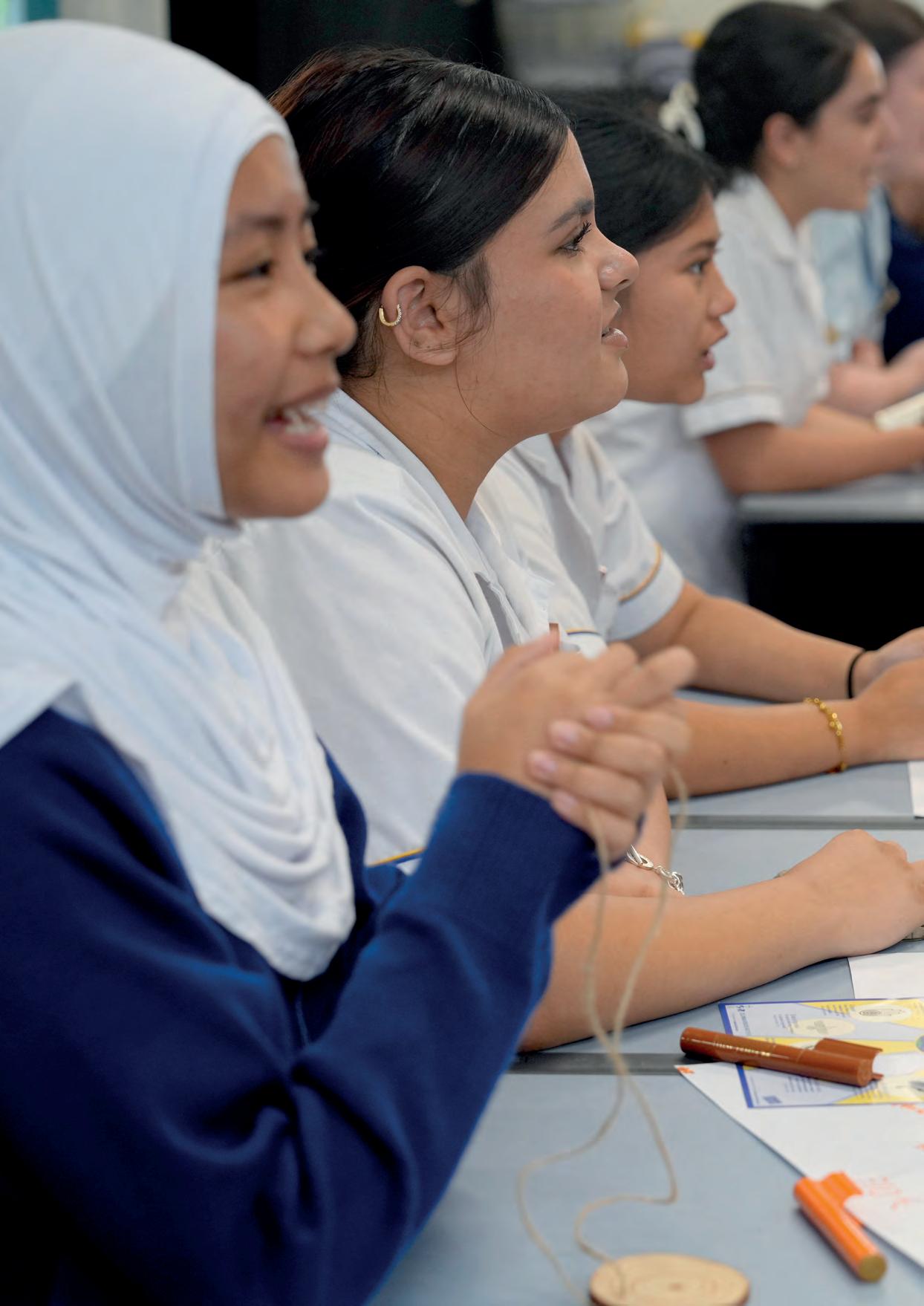
Our Interfaith Encounters Program has been selected to receive funding under the Multicultural NSW COMPACT Program, a statewide initiative that inspires and empowers young people to be champions for community harmony.
It is a great success to have been nominated as one of the grant recipients. Not only does it recognise the program’s benefits to communities, but it enables us to further develop it and to expand it to new communities,” says Catherine Towiro, Program Coordinator for Catholic Mission.
Established in 2020, the Interfaith Encounters Program aims to address the growing need to foster cross-cultural bonds and understanding between various faith-based communities.
As Australia grapples with growing divisions, Catholic Mission, informed by the wisdom and experience of its global mission work, has pioneered the program to unite young people from diverse cultural and religious backgrounds. It aims to create safe spaces for participants to explore common values, build friendships, and learn to appreciate different perspectives.
A recent report from Western Sydney University describes the Interfaith Encounters Program as a transformative initiative addressing Australia’s increasing racial and religious tensions. Prepared by the University’s Centre for Western Sydney in collaboration with the Challenging Racism Project, the report affirms the program’s success. It highlights measurable outcomes, including increased empathy, reduced prejudice, and stronger bonds between participants.
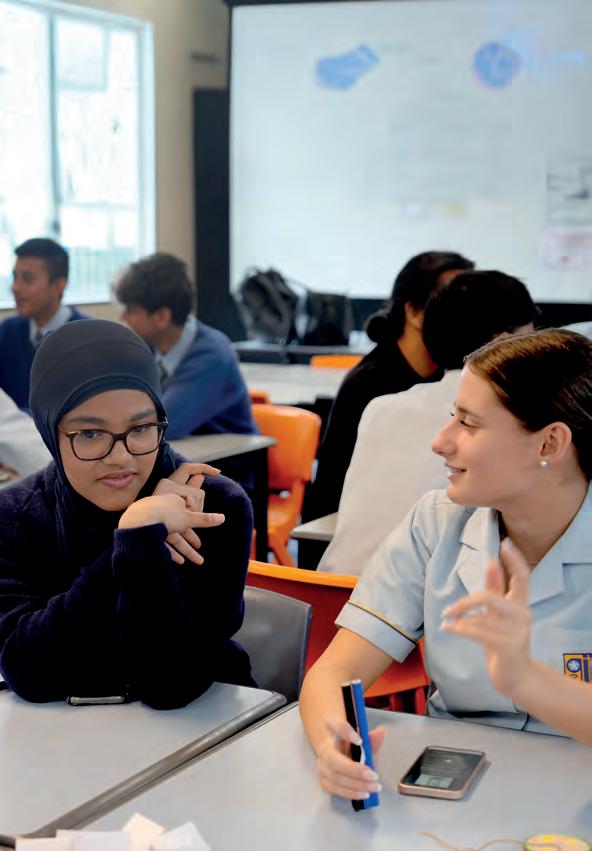
“Promoting dialogue and understanding is not just a priority, it is a necessity for a more cohesive and compassionate society,” says Catherine.
The Multicultural NSW COMPACT Program grant is securing the program’s future and ensuring the delivery of this life-changing experience to students.
“The COMPACT Program demonstrates the power of young people to shape a stronger, more inclusive society,” says Joseph La Posta, Multicultural NSW CEO.
“By equipping them with the tools to lead with empathy and resilience, we are fostering a generation that is not only prepared to tackle hate and division but to build enduring bridges of understanding.”
Learn more
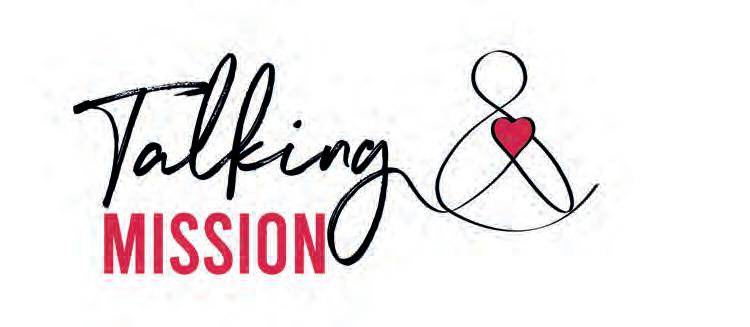
This special edition of Talking Mission saw students from the Interfaith Encounters Program holding the microphone to interview their fellow students. It was a unique experience for them to discover what happens behind the scenes, and be empowered to drive their own stories.
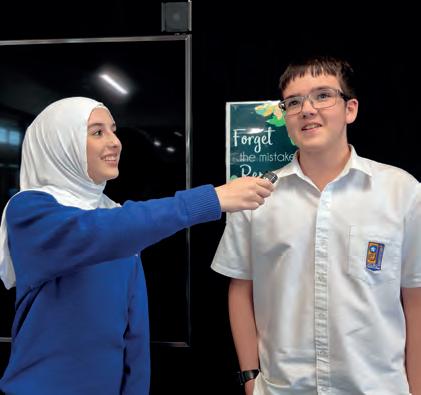
Aleena to Charlie
Aleena: Charlie, I have a few questions for you today regarding this program. My first question is, why are you here? What’s your specific reason for being here?
Charlie: I know a couple of people from other religions, and I felt like I ought to get to know some of them better. So I joined this, and it turns out it was a great choice because everyone is nice.
Aleena: With these friends of yours, or any of the people here, have you learned anything new?
Charlie: Yeah, I learned that during Ramadan, people don’t drink water for 14 hours a day — sometimes less. I never thought about it. I also learned that pregnant women don’t have to do Ramadan, and people with special needs don’t either.
Learn more
We invite you to read Talking Mission, where guests share their own missionary experience and how they turn mission into action. Get inspired today.
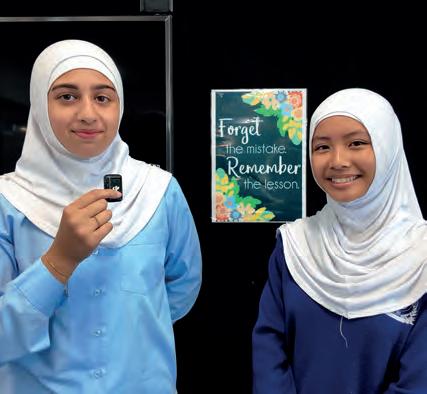
Shireen: Today we are at the second Interfaith event with Gilroy Catholic School students. Now, I noticed as we were walking in, everyone seemed a bit nervous. How were you able to break the ice and find a connection with the students?
Khairina: We were actually able to break the ice because the people from Interfaith — the workers there — gave us some activities. For example, we had some mystery activities, and we also had a few surveys as well. So all of us were able to participate and eventually break the ice between one another and build friendships.
Shireen: That’s great. You were sitting at a table with a few other students — how were you able to find a connection with them and find similarities between yourselves that you could discuss, putting aside your differences?
Khairina: Well, again, through the activities. We had this poster, and we used it to write down everything we had in common. For example, we all had siblings, we were all from some sort of Asian background, and we were all quite religious. Activities like that helped us create a stronger bond with each other.
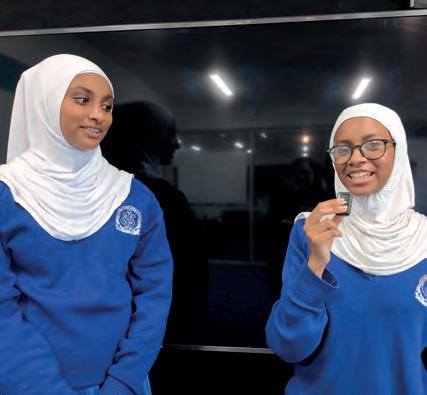
Zainab: What’s your experience been like in this program — in Interfaith?
Labeebah: It was really cool today, coming to see a new school and a new religion, and seeing how things can be both similar and different, and how people are.
Zainab: Did you feel that you got along with the students here?
Labeebah: They were very welcoming and very kind. The girls I sat with — I got along with them well. We could also relate to a few things, which helped break the ice at the beginning.
Zainab: Did you notice some similarities and differences between both schools?
Labeebah: Yeah, in religion — like at the beginning when we did the prayer, both religions were praising God and expressing gratitude. Also, during Lent and Ramadan, there were a lot of similarities between the two.
19-21 May 2025
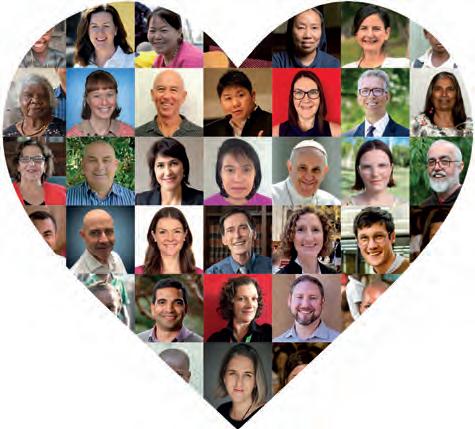
Attendees at this year’s Mission: One Heart Many Voices conference will be encouraged to embrace ‘hope’ as they discuss the challenges facing the world today, their faith, and the pathways they choose to follow.
To be held in Sydney from May 19-21, the seventh MOHMV event will bring together local and international leaders, theologians, and mission-driven professionals across Catholic organisations, parishes, schools, and aligned groups.
Reflecting the Jubilee Year’s theme ‘Pilgrims of Hope’, the conference workshops and key speakers will focus on ‘Choosing hope: trust yourself to its leading’.
The learnings from the Synod on Synodality completed in 2024 and the findings for the Australian Church following the Plenary Council will help to form many of the discussions and workshops.
“We are again taking the opportunity to do things a little differently, in response to the signs of the times and with a heart of hope,” says Peter Gates, Catholic Mission’s Deputy National Director.
“The co-designed program and process by a wonderful group of mission collaborators offers unique opportunities to see and choose emerging pathways, possibilities and seeds of hope for now and the future.
“At this conference we aim to create a crossing place, an opportunity to
develop skills and capabilities to manage the challenges, including the risks, of choosing and deciding the path to take. This place of vulnerability and uncertainty (not knowing) is a place of learning for new possibilities.”
Key presenters include Dr Anna Cody, Australia’s Sex Discrimination Commissioner and theologian Dr Estela Padilla, who was a member of the Synod on Synodality and consultant to the Federation of Asian Bishops Conference. Other keynote speakers include Fr Richard Lennan, on the subject ‘Your heart’s yearnings of mission and the Synod’s choices’ and Madeline Forde, who along with special guests, will probe the questions, ‘What am I seeking? What is my quest?’.
Providing a mixture of specialised workshops, Q&A sessions, quiet reflections, journaling and abundant opportunities for conversations and discussions, the conference is a must for anyone who believes their work will benefit from sharing and learning from others in the Catholic sector.
Co-ordinated by Catholic Mission in partnership with Catholic Religious Australia, the conference is endorsed by the Australian Catholic Bishops Conference. It will be held at the SMC Conference and Function Centre, in the heart of the Sydney CBD.
For more information and to register, go to www.mohmv.com.au.
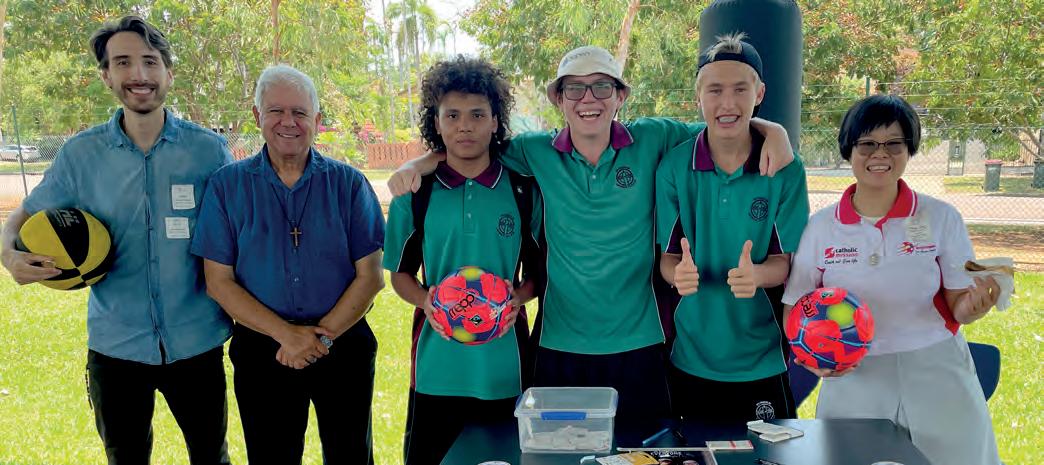
In 2024, Sr Jessika Trieu, from the Canossian Daughters of Charity, introduced Socktober to the Darwin Diocese. As Diocesan representative for Catholic Mission, Sr Jessika plays a vital role in promoting Socktober in the diocese.
The journey has been super surreal. What started from a hope and inspirations in my head and heart, I saw how the Lord blessed it into life action,” shares Sr Jessika.
In order to establish the national program in Darwin, Sr Jessika visited schools across the diocese, teaching students how to make sockballs — simple footballs crafted from recycled materials, the same as those used by children in developing communities. The sessions are more than just fun; they are moments of formation, helping students understand the impact we all can have.
“The sockball-making sessions were a chance to show how their fundraising will help underprivileged children in Mongolia,” says Sr Jessika.
The response from local schools was extraordinary.
At one primary school, every student from Year 1 to Year 6 took part in a sockball workshop, handing back their creations to be used during the school’s Mission Carnival fundraising day. Another school embraced Socktober by holding a carnival where students and teachers designed handmade games, creating a joyful and meaningful experience.
“As students contributed their creativity towards mission, they made me reflect on the joy of being in mission,” shares Sr Jessika.
Secondary students were also involved. One college raffled a Socktober Soccerball as a prize while hosting a Head-Heart-Hands wellbeing session from the resource pack, helping students to reflect on gratitude, community, and their role in the world.
“It led students to be grateful for their families, friends, and the importance of being in communities,” says Sr Jessika, adding that the energy of Socktober is “like a flame being lit and growing”.
Supported by Catholic Education NT and the Diocese of Darwin, Socktober is inspiring students, families, and teachers to turn their faith into action — raising funds to support children in need, and living out the Gospel call to love our neighbours. Learn more
